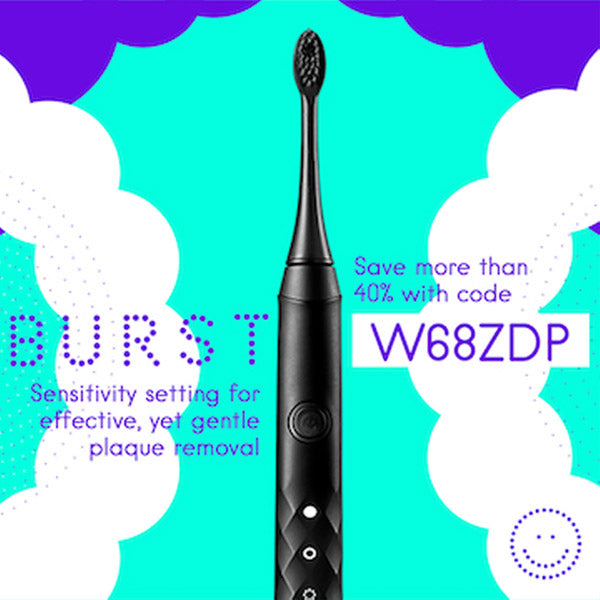Poor Oral Health is Killing Our Elders

By Angie Stone
There is an issue largely unaddressed in our geriatric communities: poor oral health is causing premature death. Dental disease won’t be reported as the cause of these deaths; however, if we trace back the root cause and understand the core of the issue, we would recognize that many of the leading causes of death in nursing homes are brought on by poor oral health. There is evidence now that even COVID19 is linked to poor oral health. We wonder if elders’ mouths are healthy, are they less susceptible to COVID19 than those with poor oral health. The likely answer is YES!
The mouth is the gateway to the body. Research has linked poor oral health to several health issues, such as heart attacks, strokes, diabetes, aspiration pneumonia, Alzheimer’s, and even some types of cancer. Many of these issues can be mitigated if the mouth is kept clean and healthy. However, many in the geriatric population currently suffer from tooth decay and/or gum disease either because they have no ability to clean their own teeth or their care providers don’t have the proper training, interest or time to provide oral care, which often leads to these severe health problems.
Some people think that dental health changes as we age—that tooth decay/gum disease is natural in the elderly—but that is a myth. This myth is further propagated in nursing homes when caregivers tell the families there isn’t much that can be done to prevent tooth decay and tooth loss. In most cases, however, properly cared for teeth can last a lifetime.
My own grandmother spent the last few years of her life in a nursing home. Between the ages of ninety and ninety-two she lost sixty percent of her teeth, and had decay in most of her remaining teeth. She had kept her teeth in good condition for 90 years, and once she wasn’t able to care for her teeth herself, there was no one assessing what was happening until she mentioned she had a toothache. At that point, it was too late. Imagine my heartache in this situation. I thought the care team and the dentist who provided services at the nursing home would be helping her take care of her oral health needs, as they did other aspects of her care. What I learned is that oral health is widely overlooked in care communities.
I encourage you to ensure your aging loved one’s teeth are properly cared for. If they take care of them on their own, or if they live in a nursing home, you need to be aware of what is necessary to keep their teeth healthy. Protocols specific to the needs of your loved one need to be in place and monitored. This means asking questions: Is your loved one capable of brushing their own teeth? Are they effectively removing the plaque? Are they eating foods that are high in sugars and refined carbohydrates? Do they have enough saliva? If they don’t have the ability to care for their own oral health, who is doing that for them? Are they doing it effectively and how do you know they are achieving this?
Semi-annual or quarterly dental check-ups are not the answer to proper oral health for our elderly. Dental check-ups will not prevent plaque buildup, cavities, or tooth decay. Routine oral hygiene is necessary for prevention.
Often times in nursing homes, the residents will refuse to let their caregivers brush their teeth. This isn’t the fault of the caregiver—they can’t force their residents to do anything. If you’re aware of this happening to your loved one, take action and try helping them brush their teeth yourself. You can also bring in a specialist to help with oral hygiene.
I created the HyLife Oral Health Alliance to fill a role that is desperately needed in care facilities. Our Oral Care Specialists make weekly visits to our patients and provide a unique service, which involves brushing and removing plaque from between the teeth and implementation of a Xylitol protocol. Xylitol is a natural occurring sugar substitute that helps decrease bacteria in the mouth, and can help sustain good oral health.
Proper oral hygiene is the first step in sustaining the overall health of the body. For those who can’t take care of themselves, it’s up to us to help them enjoy their last few years of life without the issues of tooth decay, gum disease, and the more severe health issues poor dental health can bring.
About the Author:

Angie Stone experienced the decline of the dental health of her mother-in-law and her grandmother once they were in a situation of being cared for. Upon seeing this issue, Angie went to work to create a model of care that would reduce dental disease and unnecessary suffering in the dependent adult population.
A Lifetime of Service: After many years of reading research, doing research of her own and putting her new found knowledge into application she developed the HyLife Oral Health Alliance (HOHA). It is through this group that seniors will receive a lifetime of oral care. This care results in smiles being preserved, continued ability to enjoy food, and an overall feeling of wellness. Residents experience fewer cavities, if any at all, less gum disease, and improved over all health.




